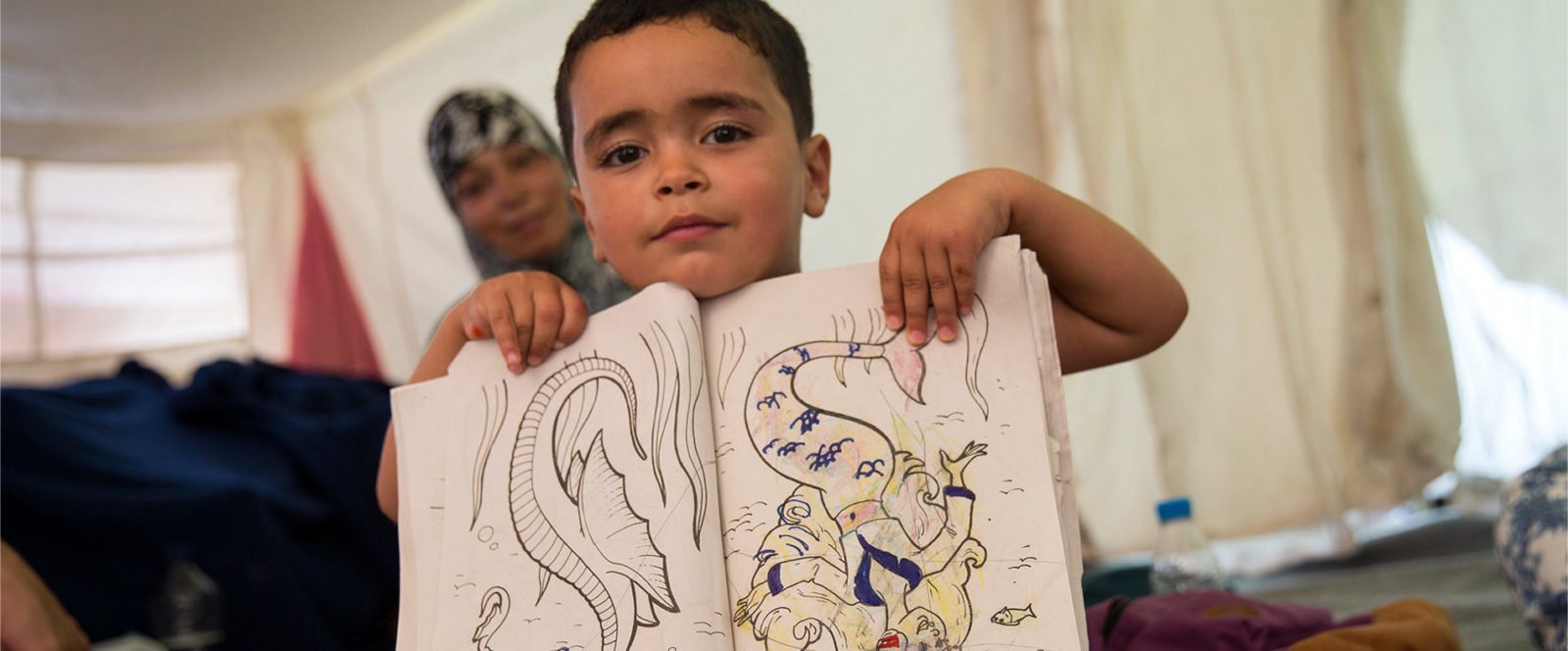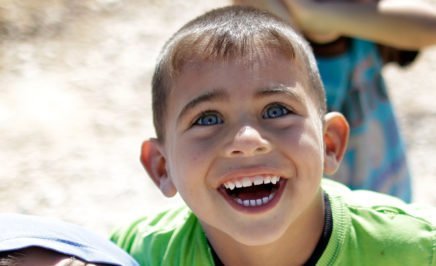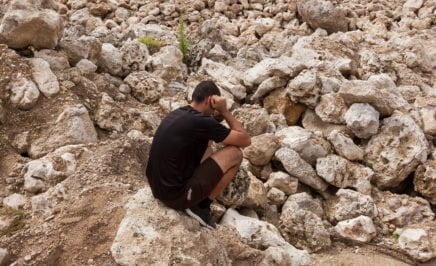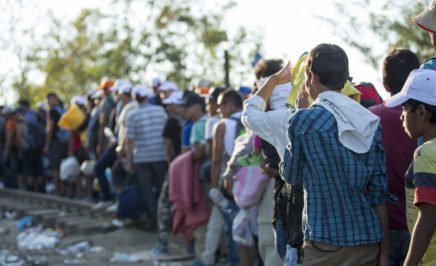A new global survey commissioned by Amnesty International shows that 80% of people would welcome refugees fleeing danger into their own countries.
The Refugees Welcome Index, based on a global survey of more than 27,000 people and carried out by strategy consultancy GlobeScan, ranks 27 countries across all continents based on people’s willingness to let refugees live in their countries, towns, neighbourhoods and homes.
The index shows that around four in five Australians agree that people should be able to take refuge in other countries to escape war or persecution.
“We did not expect to see such strong levels of solidarity with refugees, but the results reflect the inspiring human compassion people feel to those fleeing war. They want to do what they can to help, not turn their backs. Politicians need to show the same spirit,” said Amnesty International Secretary General Salil Shetty.
“We did not expect to see such strong levels of solidarity with refugees, but the results reflect the inspiring human compassion people feel to those fleeing war.”
salil shetty, amnesty international
“Refugees should be helped, protected and welcomed into communities, not held at arm’s length in refugee camps and detention centres or pushed back to harm.
“Politicians must address the shameful imbalance that sees 86% of the world’s refugees welcomed by the world’s poorer countries while the wealthy ones renege on their responsibilities.”
The survey results are further evidence that citizens across the world are increasingly conscious that the current way of dealing with the world’s refugee crisis is not working. Governments need to heed these results and incorporate the global solidarity for refugees into their immigration policies.
Like the UN, Amnesty is pushing for more than one million refugees to be resettled globally by the end of 2017. But to make that happen a new global approach is urgently required: an approach predicated on sustained and committed international cooperation and an equitable sharing of responsibilities.
Amnesty is calling on all countries, including the Australian Government, to use next week’s World Humanitarian Summit to move from short-term and often abusive measures to deter refugees and agree to long-term, proactive and globally coordinated solutions.
Majority of Australians believe people should have a safe place to stay
The Refugee Welcome Index shows that around four in five Australians agree that people should be able to take refuge in other countries to escape war or persecution.
Of the 27 countries surveyed, Australia is the fifth-highest country in the ranking of public acceptance of refugees.
“Australia has a long history of welcoming refugees and the overwhelming approval of the decision to accept 12,000 Syrian refugees is testament to that,” Amnesty International Refugee Coordinator Dr Graham Thom said.
“Australia has a long history of welcoming refugees and the overwhelming approval of the decision to accept 12,000 Syrian refugees is testament to that.”
Dr Graham Thom, amnesty international
“Australia has always been a hospitable country: we showed this when refugees were in need in the wake of World War II, then again 30 years later following the Vietnam War, and again when Chinese students were seeking safety after the Tiananmen Square massacre.
“This Refugee Welcome Index is further evidence that the Australian Government should reconsider its current refugee intake policy: Amnesty continues to call on the Government to increase the annual humanitarian intake to at least 30,000, prioritising UNHCR-approved refugees and for the resettlement of the 12,000 Syrian refugees to be completed fairly and efficiently.”
Refugees Welcome Index
The new Refugees Welcome Index, based on a global survey of more than 27,000 people carried out by the strategy consultancy GlobeScan, ranks 27 countries across all continents based on people’s willingness to let refugees live in their countries, towns, neighbourhoods and homes.
The results show people are willing to go to great lengths to make refugees welcome:
- Globally, one person in 10 would take refugees into their home: the number rises to 46% in China, 29% in the UK and 20% in Greece, but was as low as 1% in Russia and 3% in Poland.
- Globally, 32% said they would accept refugees in their neighbourhood, 47% in their city/town/village and 80% in their country.
- In 20 of the 27 countries, more than 75% of respondents said they would let refugees in their country.
- Globally, only 17% said they would refuse refugees entry to their country. Only in one country, Russia, did more than a third of people say they would deny them access (61%).
People support access to asylum, want governments to act
The survey used to construct the Index also asked two other questions about access to asylum and current refugee policies.
Access to asylum:
- 73% of people agreed that people fleeing war or persecution should be able to take refuge in other countries.
- Support for access to asylum is particularly strong in Spain (78% strongly agree), Germany (69% strongly agree) and Greece (64% strongly agree).
Governments should do more to help refugees:
- 66% of people said their governments should do more to help refugees
- In several countries at the heart of the refugee crisis, three-quarters or more still want their governments to do more, including Germany (76%), Greece (74%) and Jordan (84%)
- The least support for more government action came from Russia (26%), Thailand (29%) and India (41%).
World Humanitarian Summit
To respond to the global refugee crisis, Amnesty International is calling on governments to resettle 1.2 million refugees by the end of 2017. That is far more than the 100,000 per year governments are currently taking annually, but less than a tenth of the 19.5 million refugees in the world today.
Governments at the World Humanitarian Summit must also address the $15 billion shortfall in humanitarian funding highlighted by the UN at the start of 2016, putting forward more money to support both refugees and the countries hosting large numbers of refugees.
Background
The Refugees Welcome Index ranks countries on a scale of 0 to 100, where 0 = all respondents would refuse refugees entry to the country and 100 = all respondents would accept refugees into their neighbourhood or home.
The Index is calculated by giving countries a score based on the average of responses to the question, “How closely would you personally accept people fleeing war or persecution?” Responses were scaled to 100 as follows: 0 = ‘I would refuse them entry to my country’; 33 = ‘I would accept them in my country’; 67 = ‘In my city/town/village’; and 100 = ‘In my neighbourhood or household’.
“We designed the survey and Index to reflect the complexity of the refugee issue. People are grappling with multiple political and emotional arguments and we wanted to get their views as humans responding to a humanitarian crisis,” said Caroline Holme, Director at GlobeScan.





